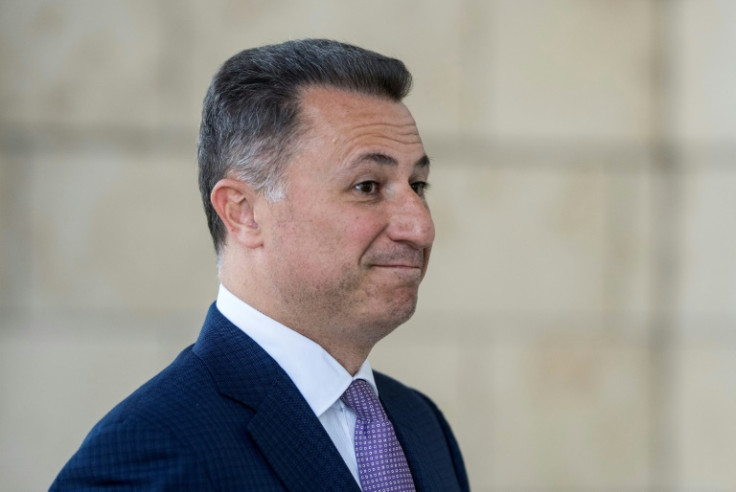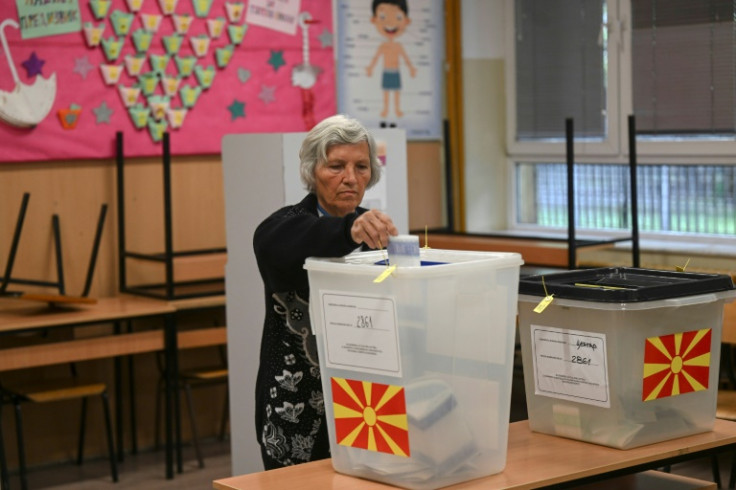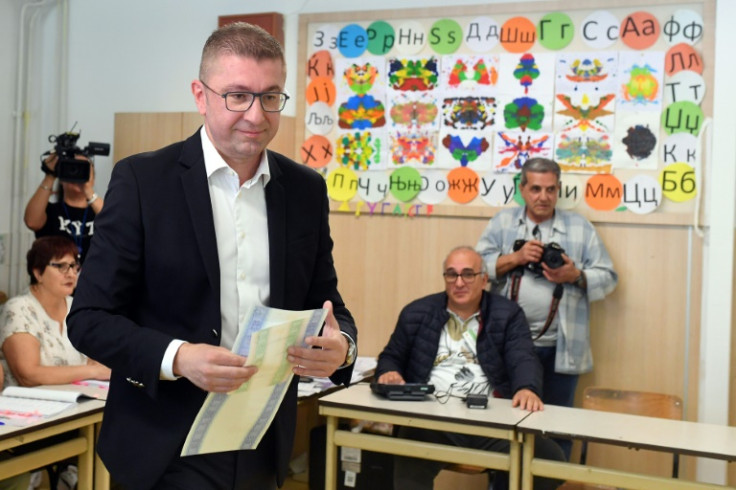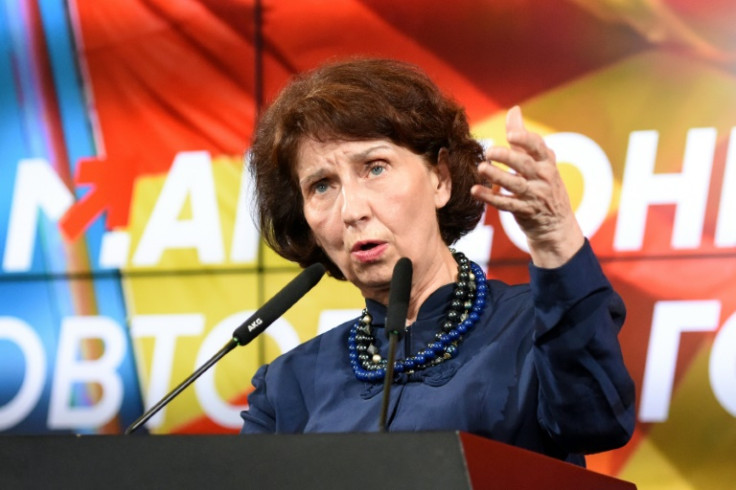
North Macedonia appeared to be on a collision course with its EU neighbours Greece and Bulgaria, as the nationalist opposition swept parliamentary and presidential elections on Wednesday.
The country's right-wing VMRO-DPMNE party earned an easy victory, with the ruling Social Democrats (SDSM) conceding defeat before any official results were announced.
Fireworks echoed through the capital Skopje as news of the landslide victory spread.
"I congratulate our political opponent VMRO-DPMNE with this victory in the elections," said Dimitar Kovacevski, the former prime minister and leader of the ruling SDSM party.
The announcement came before VMRO-DPMNE's party chief, and likely incoming prime miniser, Hristijan Mickoski had time to give his own victory speech.
The nationalist party's success will likely have a major effect on the Balkan country's dream of joining the European Union.
Mickoski has refused to acknowledge the country's new name and a historic agreement with Greece in 2018, which added "North" to its title to settle a long-running dispute and allowed the country to join NATO.
The opposition leader has also vowed to stand firm in a tussle with Bulgaria over linguistic and historical issues that has seen Sofia block North Macedonia's EU accession talks for the past two years.
Bulgaria has demanded Skopje change its constitution to acknowledge its Bulgarian minority.
In the presidential run-off, which also took place on Wednesday, VMRO-DPMNE-backed candidate Gordana Siljanovska-Davkova was set to become the country's first woman president, after beating long-time rival Stevo Pendarovski, the incumbent president.
"My biggest congratulations go to the citizens," she told media at the VMRO-DPMNE party's headquarters.
Ahead of Wednesday's polls, VMRO-DPMNE candidates were brimming with confidence, after scoring a landslide win in the first-round presidential election last month.
"Victory is within reach and it is a consequence of all the suffering and humiliation this government brought," Mickoski told supporters.
Since taking over the right-wing VMRO-DPMNE in 2017, Mickoski has revamped the tattered party after its former leader and ex-PM Nikola Gruevski fled corruption convictions and was given asylum in Viktor Orban's Hungary.
Mickoski has also pledged to create tens of thousands of jobs, a message that has found a welcome audience with many in the country battered by abysmal economic performance and soaring inflation.
North Macedonia has lost some 10 percent of its population to mass emigration over the past two decades, with few opportunities for the young.
"VMRO-DPMNE has a great advantage and has the possibility of getting an even wider mobilisation of voters," said political analyst Xhelal Neziri.
In the run-up to Wednesday's contest, Mickoski used increasingly aggressive language towards the country's largest Albanian party -- the DUI -- stirring anxieties that the rhetoric could undercut fragile inter-ethnic relations.
Albanians make up more than a quarter of the country's population of 1.8 million, and the DUI's leader Ali Ahmeti led a brief armed revolt for greater rights for Albanians in 2001.
Since declaring independence from Yugoslavia in 1991, successive governments have followed an unwritten rule that an ethnic Albanian party must be included in the governing coalition.
The DUI, along with an alliance of minority parties, appears set to capture the largest number of Albanian votes despite Mickoski lambasting its leaders over alleged corruption.
"Whenever I tell the truth, they distort it as an attack against Albanians," said Mickoski.
The ruling centre-left SDSM had warned that the elections would decide whether Macedonia has a future in the EU, but they struggled to regain the initiative since their first-round loss in the presidential poll.
"The citizens will have the final decision in which direction the state will be moving," said Kovacevski after casting his vote.
The SDSM were pinning their political hopes on unlocking talks with the EU and appeasing Bulgaria.
They tried to amend the constitution to acknowledge the Bulgarian minority but lacked the numbers to win a parliamentary vote.
Despite the roadblocks to EU membership, many voters remained hopeful that North Macedonia would join the bloc in the future.
"Without the European community we can not survive," Trajce Nacevski, a 90-year-old pensioner, told AFP. "We are a small country."










